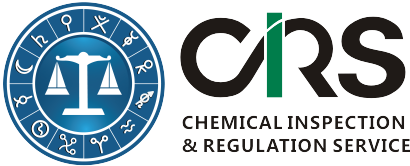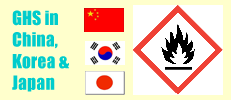Industrial Safety and Health Law (ISHL)
Japanese Industrial Safety and Health Law (ISHL) was initially implemented on 1 Oct 1972. It regulates chemicals used in workplace with the purpose of preventing workers from exposure to carcinogens. The law was administered by the Ministry of Health, Labor and Welfare (MHLW).
Chemicals Regulated under Japan ISHL
The following categories of chemicals are regulated by Japan CSCL:
- New chemical substances (see next paragraph);
- Harmful substances to be prohibited(~10 substances);
- Harmful substances to be permitted(~7 substances);
- Harmful substances to be indicated(~99 substances);
- Notified substances to be delivered MSDS(~640 substances);
New Chemical Substance Notification in Japan
A new substance is not on ISHL list requires new substance notification. Companies need to search both CSCL list and ISHL list to determine if a substance is new substance or not.
More info about how to search Japanese Existing and New Chemical Substances Inventory(ENCS) can be found here.
Data Requirement and Exemptions
The main required data for new chemical notification under ISHL are Ames-test and other company and substance specific information. This is much easier and less complex than new chemical notification under CSCL.
There are also exemptions for notification obligations (from JETOC) and they are listed as follows:
Note 1: Intermediates are exempt from new chemical notification under CSCL. Those intermediates need to be notified under ISHL if the intermediates are transformed to other chemical substances in only own site.
GHS Implementation and ISHL
The main law introducing GHS to Japan is the Industrial Safety and Health Law (ISHL). The main law introducing GHS to Japan is the Industrial Safety and Health Law (ISHL). ISHL requires GHS classification data on labeling in MSDS for the following substances from 1 Dec 2006:
- 99 designated chemicals for which labels are required according to Article 57 of ISHL;
- 640 designated chemicals for which SDSs are required according to Article 57-2 of ISHL;
Besides ISHL, the law concerning reporting, etc. of the release to the environment of specific chemical substances and promoting improvement in their management (PRTR law) has required MSDS for over 400 designated chemicals.
For other chemicals, GHS SDS and labels are strongly recommended. Japan has published three industrial standards to facilitate GHS implementation: GHS classification (JISZ7252), MSDS (JISZ7250) and label (JISZ7251). In those standards, acute toxicity category 5, skin corrosion/irritation category 3 and aspiration hazard category 2 are not adopted.
More info about GHS in China, Korea and Japan can be found here.
To follow more events and free regulatory updates from CIRS, please subscribe our monthly newsletter:
Our Japan Chemical Compliance Services
- Search and confirm if a substance is new in Japan;
- Confirm if a substance requires notification in Japan;
- Dossier preparation and submission of new substance notification under CSCL and ISHL(full notification, SVE, LVE and polymer);
- Test monitoring/translation of study reports;
- Preparation of Japanese SDS and label;
- Regulatory update monitoring.
About Us and Contact
We have provided one-stop chemical notification and GHS services for many companies doing business in/with Asia (for example, China, Japan, Korea, Taiwan, Malaysia, and Philippine). We help them find out how their chemicals are regulated in those countries or regions and offer free initial consultations about how to comply. If notification is required, we help them submit chemical registrations. We also prepare or translate GHS compliant SDS and label in accordance with their national chemical legislation at affordable prices.
If you have any questions about chemical compliance in the Asia-pacific region, please contact:
- CIRS China
11F Building 1, Dongguan Hi-Tech Park, 288 Qiuyi Road, Binjiang District, Hangzhou 310052, China
Tel: +86-571 8720 6555 | Fax: +86-571 8720 6533
Email: service@cirs-reach.com




